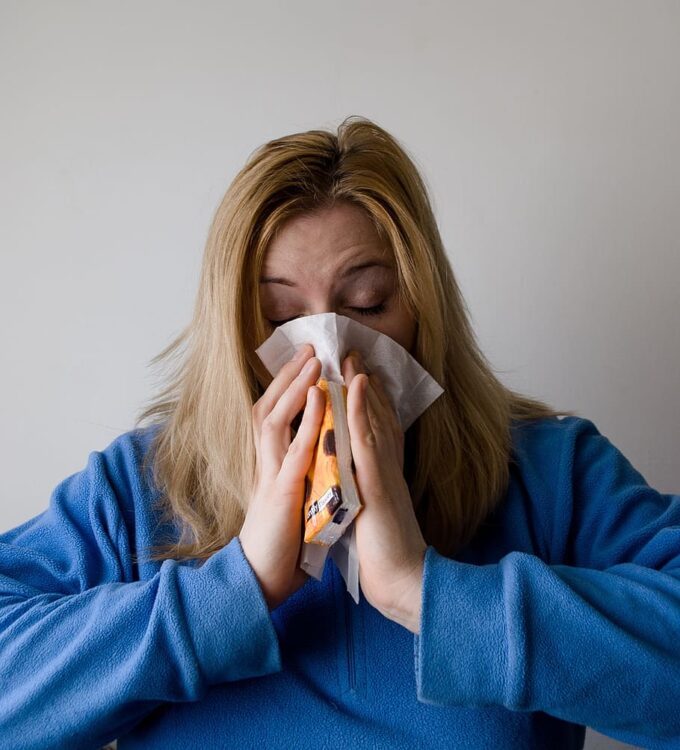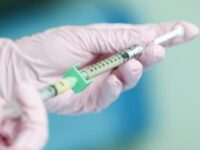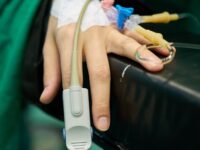On a college campus populated by a fully vaccinated and COVID-cautious student body, having a coughing fit in the middle of a lecture feels like a crime against humanity. Such a fit is often followed by whispers of “it’s not COVID, I promise! I was just tested!” and attempts to reassure surrounding students that they are safe. But after only a few weeks with 13,000 students on campus, the resounding question became why does it feel like everyone is sick? The answer might not come as a surprise, but it will surely feel frustrating. Simply put, while we spent two years isolating ourselves to evade COVID-19, our innate immunity was weakened through drastic lifestyle changes and irregular exposure to common viruses and bacteria.
Individuals across the world have suffered from a lack of exposure to seasonal respiratory illnesses
Humans harbor two different kinds of immune systems: innate and adaptive. The adaptive immune system has a delayed activation after a pathogen enters a host. Conversely, the innate immune system activates immediately after a pathogen is detected and helps facilitate the work of the adaptive immune system, making it a necessary and fundamental factor in a host’s defense. In a healthy person, the two immune systems work in harmony to successfully protect and defend the host from harmful pathogens. Sometimes, exposure to pathogens aids in strengthening the immunological response, or the ability for both immune systems to recognize a pathogen from previous infections and destroy it more efficiently.
Beginning in March 2020, most of the world entered a mandated lockdown, and for the next 18 months, no one was able to socialize in conventional ways. While these lockdowns and self-imposed quarantines were effective in flattening the COVID-19 curve, there is now evidence of adverse consequences. Without a regular winter of crowded public transportation, holiday travel, and the general mixing of people in public spaces, individuals across the world have suffered from a lack of exposure to seasonal respiratory illnesses. This has contributed to weakened innate and adaptive immune responses. Now, with universities, public transportation, clubs, concerts, offices, and more reopening at nearly full capacity, the human population has transitioned from virtually no exposure to extensive exposure. In addition, the average college student’s lifestyle has further suppressed immunity through irregular sleep patterns, unhealthy diets, anxiety, and excessive drinking — all factors that weaken the immune system. Not only has the level of exposure to pathogens increased significantly, but due to missing out on the cold and flu season last year, immune systems have to work extra hard to rid the body of common respiratory illnesses. Thus, this year’s common cold feels especially grueling. This year, the onset of fatigue is a particularly notable symptom that is causing people to stay home from school and work. Such fatigue is the result of the immune system working overtime to kill pathogens.
This year, the onset of fatigue is a particularly notable symptom that is causing people to stay home from school and work.
So, what can be done? After eliminating the possibility of a COVID-19 infection, how does one treat the “worst cold ever?” Unfortunately, the common cold must go away on its own. Over-the-counter decongestants and anti-inflammatories can help alleviate symptoms, but curing the common cold this year is no different than curing a cold two years ago. Lifestyle changes such as going outside, exercising, and maintaining a healthy diet can certainly promote a stronger immune system. But the bottom line is this: if you have a cold, know that you are not alone and take extra care of your body and mind. Go forth with the knowledge that next year’s cold and flu season may be less extreme because our immune systems will be better adjusted.
New England Journal of Medicine: Innate Immunity (2000).DOI: 10.1056/NEJM200008033430506
Current Allergy and Asthma Reports (2014). DOI: 10.1007/s1188201304135






